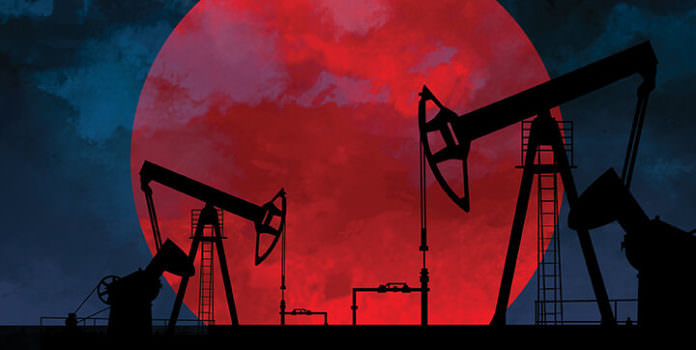
10 Things You Need to Know About Oil and Gas Today: Including Gas Prices and Uncombusted Methane
The Big Story
The big story today is that oil prices have suddenly begun to rebound, with WTI trading above $20 per barrel in early morning trading. Just a few days ago, many were predicting that the June contract that is currently being traded would go negative as storage space in the U.S. continued to fill up.
But, as often happens in the oil business, the predictions of the experts have run into reality. That reality appears to be that U.S. producers have cut production far more significantly and rapidly than the market had expected; as a result, the storage builds over the past two weeks have been smaller than anyone expected.
Obviously, $20 WTI is nothing to celebrate, but the rapid response by U.S. producers will certainly put a damper on next Tuesday’s hearing by the Texas Railroad Commission, at which the commissioners will consider a draft proration order to restrict Texas oil producers to no more than 80% of their October, 2019 volumes. Given that it appears that most Texas producers have already reduced their own volumes by that much and more in reaction to market conditions, such an order would appear to be moot.
In other news...
The Environmental Defense Fund released a new report on Thursday detailing the results of aerial surveys designed to measure the extent of flaring in the Permian Basin. The study was conducted in conjunction with Harvard University. Here’s an excerpt from the executive summary:
Recent satellite data estimates companies in the Permian Basin burned away at least 275 billion cubic feet of methane last year—that’s enough gas to serve nearly 5 million homes for a year. While this waste problem has been well documented, much less has been known about methane emissions from flares. We’ve conducted multiple surveys of hundreds of flare stacks across the basin, which reveal methane emissions from flaring are a significant and widespread problem.
Producers should take special note of this next paragraph:
MORE THAN ONE OUT OF 10 FLARES WERE EITHER UNLIT – VENTING COMPLETELY UNCOMBUSTED METHANE – OR BURNING ONLY PART OF THE GAS THEY WERE RELEASING.
If accurate, this finding would be extremely damaging to the industry and its reputation in Texas. The venting of uncombusted methane is illegal in most instances, and is not an issue the industry should take lightly.
As we have noted repeatedly here at Shale Magazine, the flaring of natural gas in the various shale plays in the U.S. has been a chronic issue for the industry for more than two decades. It is a blot on this great industry’s reputation that it has gone without an effective, coordinated effort to address it in all that time.
In response to the new report, some industry groups have questioned the report’s findings. Todd Staples, President of TXOGA, noted that “Industry is developing innovations, pioneering technologies, and achieving efficiencies that are successfully reducing emissions,” in an interview with Bloomberg on uncombusted methane.
My own view is that effective technologies to reduce flaring, while expensive, have existed for many years now and the industry has by and large refused to adopt them for monetary reasons. While it is commendable that TXOGA and other groups are working to address the problem today, it is quite justifiable for groups like EDF and Harvard to question why such an effort was not mounted many years ago.
It’s a real black eye, and will remain so until the big producers finally get their arms around a real solution to the problem.
Meanwhile, in a far less-justifiable action, The Sierra Club filed a new lawsuit against Kinder Morgan over its Permian Highway Pipeline project. This pipeline would actually help to alleviate the flaring issue by carrying Permian natural gas to the Gulf Coast for processing. Efforts by the Sierra Club and the astroturfing lobby groups that continue to work to delay this bit of critical infrastructure continue to cause harm to the environment in Texas.
Changes to a new lending program have now made government financing available to distressed oil and gas producers.
Shell Oil Company announced on Thursday that it would cut its dividend payments to investors in response to current difficult market conditions.
ExxonMobil posted its first quarterly loss in more than 32 years. Its Q1 2020 loss came in at $610 million. Yikes.
Rumors continue to swirl around a possible bankruptcy filing by Chesapeake Energy after the company declined to pay its preferred shareholder dividends and entered into a shareholder rights agreement.
ConocoPhillips announced additional production curtailments on Thursday. The company said it would increase its cuts from the 225,000 bopd originally promised a few weeks ago to 265,000 in response to current markets conditions.
That’s all for today.














